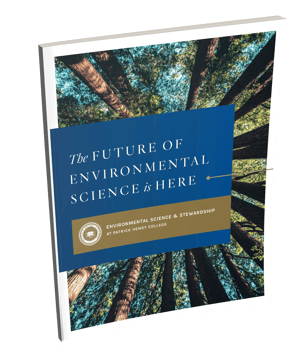 ESS Curriculum
ESS CurriculumIn the 21st century, environmental scientists must be trained to independently conduct and analyze research, evaluate problems holistically, and draw data from a range of disciplines to develop integrative solutions in an increasingly complex world. They must be able to communicate their findings effectively, bridging the gaps that exist between scientists, industry, policy makers, and the public.
PHC is the best preparation for the next generation of environmental scientists.
ESS students study biology, chemistry, physics, statistics, hydrology, geology, ecology, calculus, and more. These disciplines are integrated in capstone experiences, including courses in environmental science and the philosophy of stewardship, as well as apprenticeships.
PHC's distinct Classical Liberal Arts Core Curriculum helps students develop excellent critical thinking and communication skills. The ESS major integrates principles of biblical stewardship and cultivates an ethic of responsibility, wonder, and gratitude.
At Patrick Henry College, the ESS faculty bring a rare mix of academic qualifications with research and teaching experience. From exploring the impact of biofuels on the atmosphere to forecasting the impact of vaccination programs and tracking the spread of respiratory viruses, ESS faculty have used their expertise to serve their neighbors and steward the environment.
Ph.D. & M.A. from Princeton University; B.A. from the University of Chicago.
Ph.D. & M.A. from Georgetown University; M.A. from Gonzaga University; B.A. from Crown College.
MPH in Epidemiology from the University of Washington
PhD in Epidemiology from the University of Washington
PHC faculty are committed to academic excellence in all spheres of knowledge, rooted in timeless Scriptural principles. Students are mentored by caring faculty and equipped for a lifetime of service to others and care for the environment.
Whether pursuing a career in wildlife conservation, natural resource management, or environmental consulting, the ESS program trains students to seek meaningful answers to difficult questions. Graduates are prepared for entry-level jobs in environmental science, secondary education, policy analysis, as well as graduate science programs.